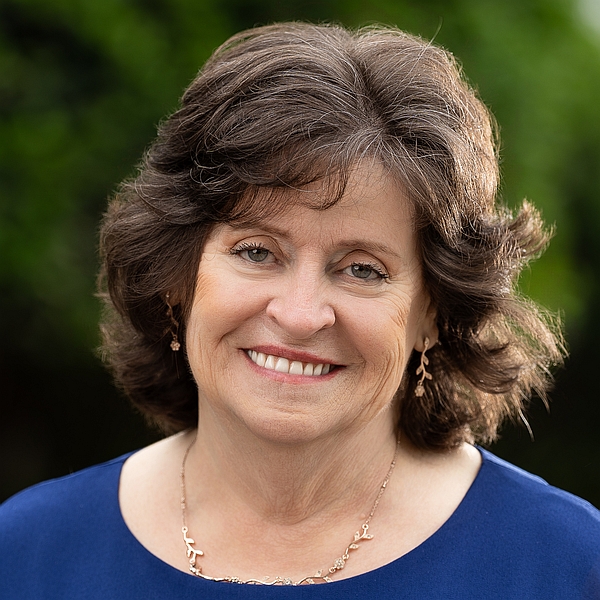One of the worst challenges one can face is adjusting to life after the death of someone we love. Even though most of us will experience this at some point in our lives, we are never prepared for it and unfortunately, our society does not generally understand grief and doesn’t have a space for it. You may have heard of the stages of grief, but what does that look like in real life, and is it really that simple? Christian grief counseling can help.
Grief is Personal
Grief shakes our world and is personal, confusing, exhausting, and may cause you to wonder if you are going crazy, if it will ever end, if you are “doing it right” or if anyone cares. There is no timeline for grief, no formula for how to grieve.
There is no right way to grieve, but there is a right way for you, and a counselor can help you with this. You are not crazy. Whatever you are experiencing is normal. Grief may not end but it can get easier. How long will you miss the person you love?
You will miss them for the rest of your life, but it will be less painful and become a manageable part of your life. The intensity of your grief will reflect the love of the person. You may feel alone in your grief, but remember that God cares deeply, as Psalm 34:18 (NASB) says, “The Lord is close to the brokenhearted and saves those who are crushed in spirit.” Plano Christian Counseling offers faith-based grief support to walk alongside you as you navigate loss and begin to find hope and healing.
Because others around you may also be grieving and your usual support system is weakened or shaken, seeing a counselor to help during grief is important. You may tend to push through and try to get back to “regular” life when inside you are an emotional wreck.
You may feel you need to be strong for others. You may be the one who needs to manage everything and take care of others, so you push your emotions aside. This is mentally and emotionally exhausting! Time with a counselor allows you to care for yourself and cope with your emotions.
Counseling provides a safe space where grief is understood, accepted, and dealt with in a compassionate, non-judgmental personal manner. As Christians, we are told in Galatians 6:2 (NIV) to “carry each other’s burdens and in this way, we will fulfill the laws of Christ.” God never tells us that we should face difficult times alone. Time with a counselor is a time for you to focus on your feelings.
Grief Counseling for Recovery
There is no “one size fits all” grief recovery plan. You may need to return to work after a few days, or you may need to take time off. Grief reflects the relationship and the love, but also the circumstances around the death. A sudden, unexpected death by violence, suicide, or accident often produces different aspects of grief than the death of someone who has had a long illness.
Sorting out all of these feelings, actions that need to be taken, and thoughts you are having can be mentally overwhelming. Seeing a counselor to help you stabilize your thoughts and feelings can reduce the stress of this time.
While a caregiver of someone with a terminal illness may experience some relief along with their grief and feel guilty at having this emotion, a counselor will understand that feeling relief in no way indicates that the caregiver is not grieving appropriately. Anticipatory grief that the caregiver has been experiencing for however long the person has been sick has been draining, and a counselor understands that when this phase of grief has ended, the caregiver is relieved.
Thinking Clearly With Grief Counseling
Grief can make it difficult to think clearly, so talking to a counselor who is not grieving and can think clearly is important. “Grief brain” refers to changes in brain activity and function that occur after a loss due to the release of stress hormones, such as cortisol and adrenaline.
These can lead to feelings of anxiety, agitation, and physical symptoms such as fatigue, changes in appetite, and insomnia. During grief, people are at a greater risk of falls, heart attacks, and other illnesses. Counseling can help you learn techniques to reduce these physical reactions, which can lead to improved sleep, appetite, and clear thinking.
 It can be easy to turn to unhealthy coping methods, especially when you are not thinking clearly. Unhealthy ways of coping, such as alcohol consumption or using drugs, isolating, and overworking, may provide temporary relief, however, the long-term consequences will just compound a person’s stress. A counselor can help you learn healthy coping skills and avoid unhealthy patterns.
It can be easy to turn to unhealthy coping methods, especially when you are not thinking clearly. Unhealthy ways of coping, such as alcohol consumption or using drugs, isolating, and overworking, may provide temporary relief, however, the long-term consequences will just compound a person’s stress. A counselor can help you learn healthy coping skills and avoid unhealthy patterns.
Well-meaning family and friends may offer advice; however, it may not be helpful, it may be triggering, feel intrusive, or overwhelming. Setting boundaries with family and friends during grief can be difficult as everyone’s emotions are fragile and easily hurt. Having a counselor to help you navigate these situations can save relationships and allow you to focus on your own healing.
Unfortunately, family conflict often arises during grief for a variety of reasons, adding additional hurt and stress. Emotions are running high, people are not thinking clearly, and things can be said without thinking.
At such times, a counselor can meet with family members to help them resolve conflicts, preventing or reducing hurt feelings. Both sides will be heard by the counselor with compassion and understanding, and they will facilitate communication so they can come to an agreement.
Grief Plan
In my experience as a counselor and with my own grief journey, grieving is a process that is complex and at times overwhelming; however, having a clear “grief plan” can help make it manageable. Grief plans are personal and should reflect the relationship that has ended.
For example, a grief plan may include activities such as visits to the gravesite, making donations to an organization, writing therapeutic letters, holiday traditions, enjoying special meals, or an activity. A grief plan can be adjusted as needed.
It may have a definite end, or it may be ongoing. My grief plan for my brother is different than for my mother, as my relationship with him was different than with my mother. My mother died in 2008, and my plan of grief for her has changed over the years, but it is still important and especially helps during the most difficult times, such as holidays.
Grief is something most of us will deal with sometime in our lives. I do not consider it something we go through, tough out, time heals, or get over. I believe we learn to live with it, and I also believe that grief, gratitude, and joy can co-exist. I also believe we get stronger at carrying grief, and it does get easier.
I grieve the people that I have loved who have died, but I’m grateful that they were part of my life, and when I remember the happy times, I find joy. Grief is a difficult journey, but I have held onto God’s promise that He is near, and God has brought people into my life to walk with me during my grief journey. I have no doubt He will do the same for you!
Christian Grief Counseling
I also believe that my own grief experiences, as well as my training and experiences as a counselor, have given me a unique point of view to help you during grief.
Finally, I believe knowledge is power, and the more we know about and understand grief, the more power we have to cope with it. Grief is tough; do not make it tougher by doing it alone. Contact me at 469-333-6163 to schedule an appointment at Plano Christian Counseling so I can share this burden of grief you are carrying at this time, and with the Lord’s help, I pray to be able to lessen your pain.
“Sunlight Through the Trees”, Courtesy of Ingmar H, Unsplash.com, CC0 License
-
Rhonda Gist: Author
With 22 years of mental health experience, I offer compassionate Christian counseling for couples, children, teen, adult individuals, and families. My hope is that through our time together, you will feel renewed, refreshed, and recharged. Overcoming...
-
Kate Motaung: Curator
Kate Motaung is the Senior Writer, Editor, and Content Manager for a multi-state company. She is the author of several books including Letters to Grief, 101 Prayers for Comfort in Difficult Times, and A Place to Land: A Story of Longing and Belonging...
Recent Posts
DISCLAIMER: THIS ARTICLE DOES NOT PROVIDE MEDICAL ADVICE
Articles are intended for informational purposes only and do not constitute medical advice; the content is not intended to be a substitute for professional medical advice, diagnosis, or treatment. All opinions expressed by authors and quoted sources are their own and do not necessarily reflect the opinions of the editors, publishers or editorial boards of Stone Oak Christian Counseling. This website does not recommend or endorse any specific tests, physicians, products, procedures, opinions, or other information that may be mentioned on the Site. Reliance on any information provided by this website is solely at your own risk.






